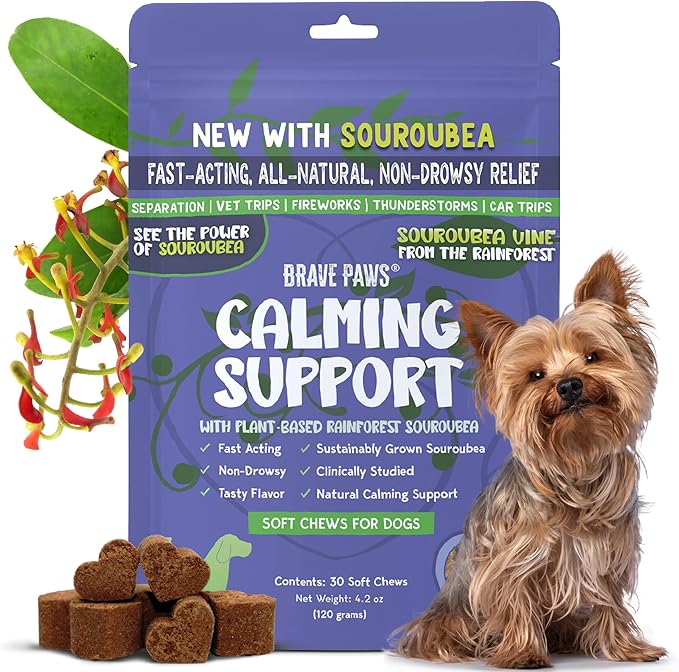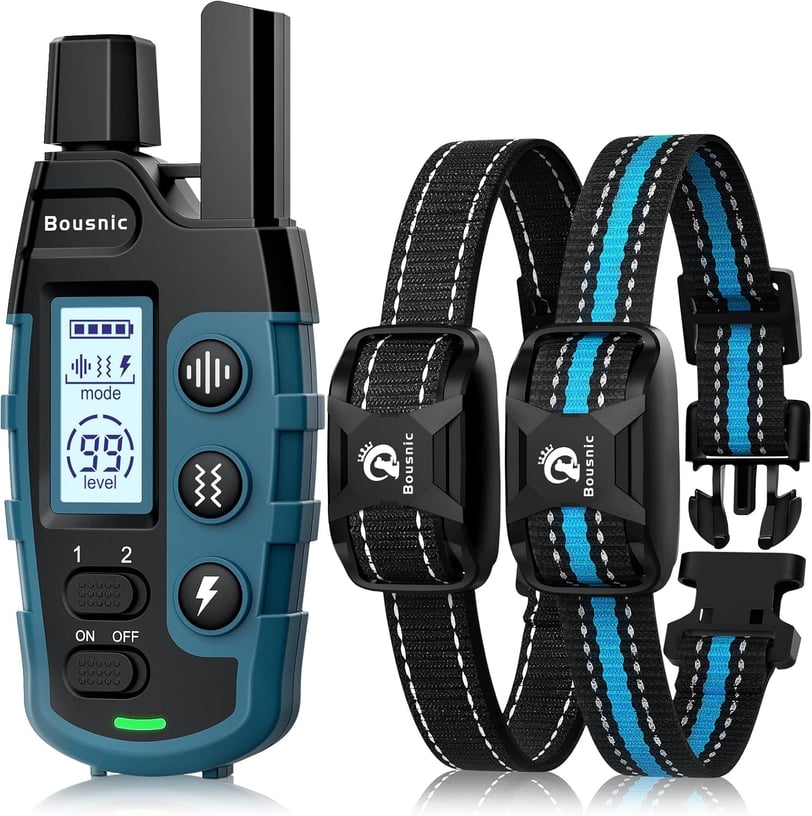How to Train Your Dog to Stop Barking: A Comprehensive Guide
Discover effective techniques to train your dog to stop excessive barking. This comprehensive guide covers identifying barking triggers, using positive reinforcement, desensitization, and counterconditioning. Learn how to increase exercise and mental stimulation, teach the "quiet" command, and find helpful tools and products. Get professional tips for a peaceful household.
The Canine Chronicles
8/25/20246 min read


Is your dog's excessive barking driving you and your neighbors crazy?
As a dog owner, I know firsthand how frustrating it can be when your furry friend just won't stop barking.
But don't worry, I've got you covered with some tried-and-true techniques to help you train your dog to stop barking and restore peace to your household.
Why Do Dogs Bark?
Before we dive into the training techniques, it's essential to understand why dogs bark in the first place. Barking is a natural way for dogs to communicate, and they may bark for various reasons, including:
Territorial/protective barking: When a dog feels that their territory is being threatened, they may bark to alert you and ward off the perceived threat.
Alarm barking: Dogs may bark to alert you to potential dangers, such as an intruder or an unusual sound.
Attention-seeking barking: Some dogs bark to get attention from their owners, whether it's for playtime, a treat, or just to be acknowledged.
Boredom barking: Dogs that are left alone for long periods or don't get enough mental and physical stimulation may bark out of boredom or frustration.
Separation anxiety barking: Dogs with separation anxiety may bark excessively when left alone, often accompanied by other destructive behaviors.
Identify the Cause of Your Dog's Barking
To effectively train your dog to stop barking, you need to identify the root cause of the behavior. Take note of when and where your dog barks the most, and what seems to trigger the barking. Once you've identified the cause, you can choose the most appropriate training technique to address the issue.
Training Techniques to Stop Excessive Barking
1. Positive Reinforcement
One of the most effective ways to train your dog to stop barking is through positive reinforcement. This involves rewarding your dog for quiet behavior and ignoring them when they bark. Here's how to do it:
When your dog is quiet, praise them and offer a treat.
If your dog starts barking, ignore them completely. Don't look at them, talk to them, or touch them until they stop barking.
As soon as they stop barking, praise them and give them a treat.
Consistency is key – make sure to reward your dog every time they stop barking, and never give in to their barking demands.
2. Desensitization and Counterconditioning
If your dog barks at specific triggers, such as the doorbell or other dogs, you can use desensitization and counterconditioning to help them become less reactive. Here's how it works:
Identify your dog's barking trigger and expose them to it at a low intensity (e.g., a recording of a doorbell at a low volume).
When your dog remains calm, praise them and offer a treat.
Gradually increase the intensity of the trigger over time, always rewarding your dog for staying quiet.
If your dog starts barking, take a step back and lower the intensity of the trigger.
3. Increasing Exercise and Mental Stimulation
Many dogs bark excessively due to boredom or pent-up energy. To help reduce barking, make sure your dog gets plenty of physical exercise and mental stimulation each day. This can include:
Long walks or runs
Play sessions with toys or other dogs
Puzzle toys filled with treats
Training sessions to learn new tricks or commands
A tired and mentally stimulated dog is less likely to bark out of boredom or frustration.
4. Teaching the "Quiet" Command
Another useful technique is to teach your dog the "quiet" command. This allows you to stop your dog's barking on cue. Here's how to teach it:
Wait for your dog to start barking, then calmly say "quiet" and hold a treat in front of their nose.
As soon as they stop barking to sniff the treat, praise them and give them the reward.
Repeat this process several times until your dog learns to associate the "quiet" command with stopping barking and getting a treat.
Practice the "quiet" command in various situations and locations to reinforce the behavior.
Tools and Products to Help Stop Barking
In addition to training techniques, there are several tools and products available that can help reduce your dog's barking. Some popular options include:
Bark collars: These collars detect when your dog is barking and deliver a correction, such as a mild shock, vibration, or citronella spray. However, it's essential to use these collars carefully and under the guidance of a professional trainer to avoid causing undue stress or anxiety to your dog.
Ultrasonic bark deterrents: These devices emit a high-pitched sound that is unpleasant to dogs when they bark, helping to discourage the behavior. They can be particularly useful for stopping territorial barking in your yard.
White noise machines: If your dog barks at external noises, a white noise machine can help mask the sounds and reduce barking.
Calming aids: For dogs that bark due to anxiety or stress, calming aids such as pheromone diffusers, calming chews, or anxiety wraps may help reduce barking and promote relaxation.
When to Seek Professional Help
If you've consistently tried these training techniques and your dog is still barking excessively, it may be time to seek the help of a professional dog trainer or behaviorist. They can assess your dog's specific needs and develop a customized training plan to address the barking issue. This is particularly important if your dog's barking is accompanied by aggression or if it stems from severe anxiety or fear.
Frequently Asked Questions
How long does it take to train a dog to stop barking?
The time it takes to train your dog to stop barking varies depending on the individual dog, the cause of the barking, and the consistency of the training. Some dogs may show improvement within a few days, while others may take several weeks or months. Consistency and patience are key to success.Can I use a muzzle to stop my dog from barking?
While a muzzle may physically prevent your dog from barking, it does not address the underlying cause of the behavior and can cause undue stress and anxiety. It's better to focus on positive training techniques that teach your dog alternative behaviors.What if my dog barks at night?
If your dog barks excessively at night, it's essential to identify the cause. They may be barking due to boredom, anxiety, or external noises. Try using a white noise machine to mask outside sounds, providing a comfortable sleeping area, and ensuring your dog gets plenty of exercise and mental stimulation during the day to help them sleep better at night.Can I use a shock collar to stop my dog from barking?
While shock collars may stop barking in the short term, they can cause pain, fear, and anxiety in dogs and damage the human-animal bond. It's better to focus on positive, reward-based training methods that encourage good behavior rather than punishing bad behavior.
Sources and further reading
Conclusion
Training your dog to stop barking takes time, patience, and consistency, but it's well worth the effort for a peaceful household and a happier, more well-behaved dog. By identifying the cause of your dog's barking, using positive reinforcement techniques, and providing plenty of exercise and mental stimulation, you can effectively reduce excessive barking and strengthen your bond with your furry friend.Remember, every dog is unique, and what works for one may not work for another. If you're struggling to make progress on your own, don't hesitate to seek the guidance of a professional dog trainer or behaviorist. With the right tools, techniques, and support, you can help your dog become a calmer, quieter companion.
Thanks and best regards
The Canine Chronicles
Click the link below for Primal Nutrients Formula For Dogs. UltraK9 Pro contains a spectrum of carefully selected primal nutrients, which can turn any dog back into the fierce, healthy and energetic wolf that they are deep inside.
Click here for a healthy canine!
This post may contain affiliate links. If you make a purchase through one of these links, we may earn a small commission at no additional cost to you. We only recommend products and services that we have personally used and believe will add value to our readers. Your support helps us continue to provide valuable content. Thank you for your support!




